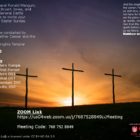Faith
Are we up to the challenge?
|
In December our thoughts turn to the birth of our dear Savior and bringing light and peace into our hurting world. Several of the sayings that we have come to know were made popular in Christmas stories. One of these was having one’s work cut out for them. We are living in a day of dread, division, disaster and disease. This common
saying has been linked to the tailoring business as far back as the early 17th
century.




